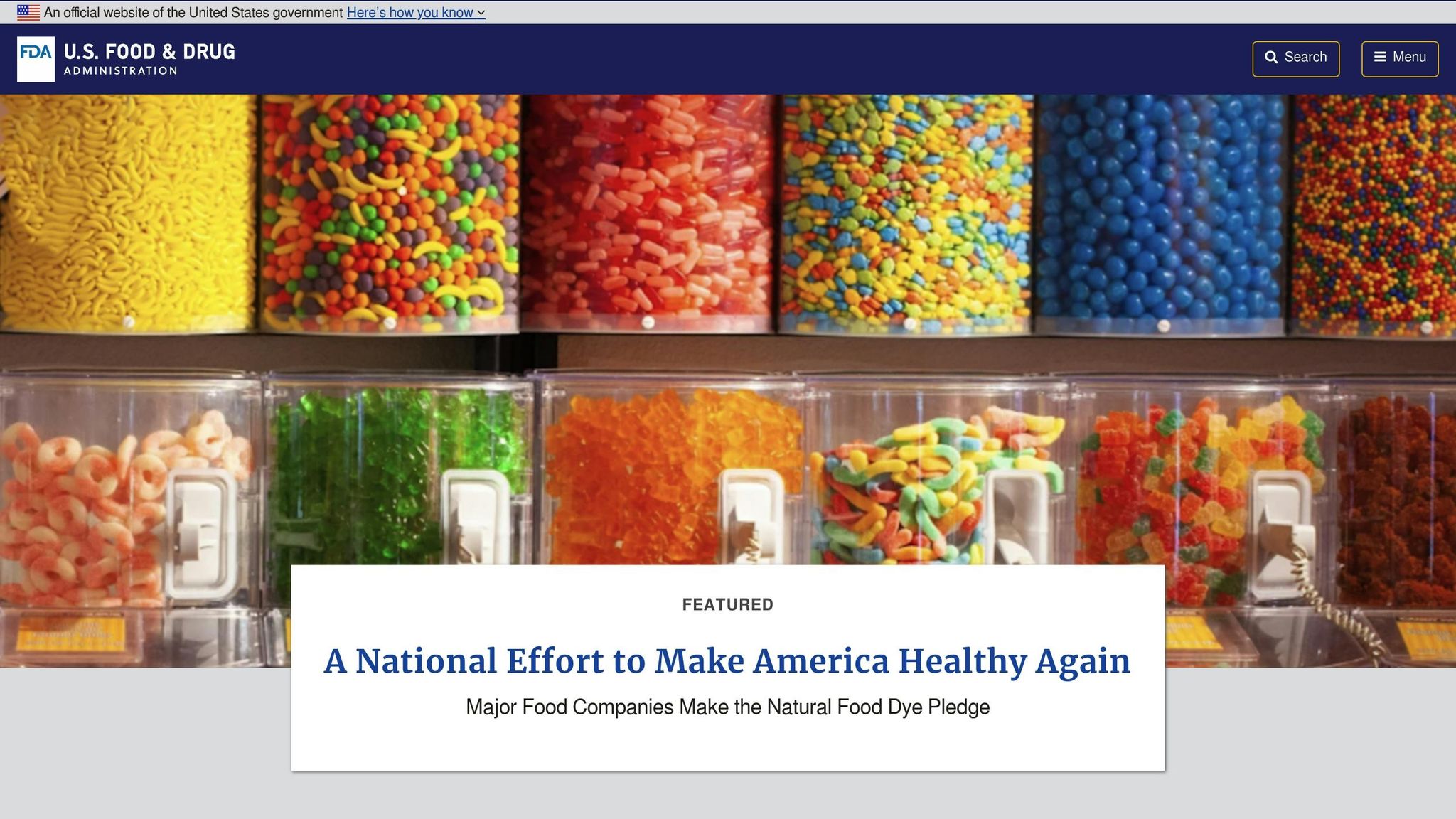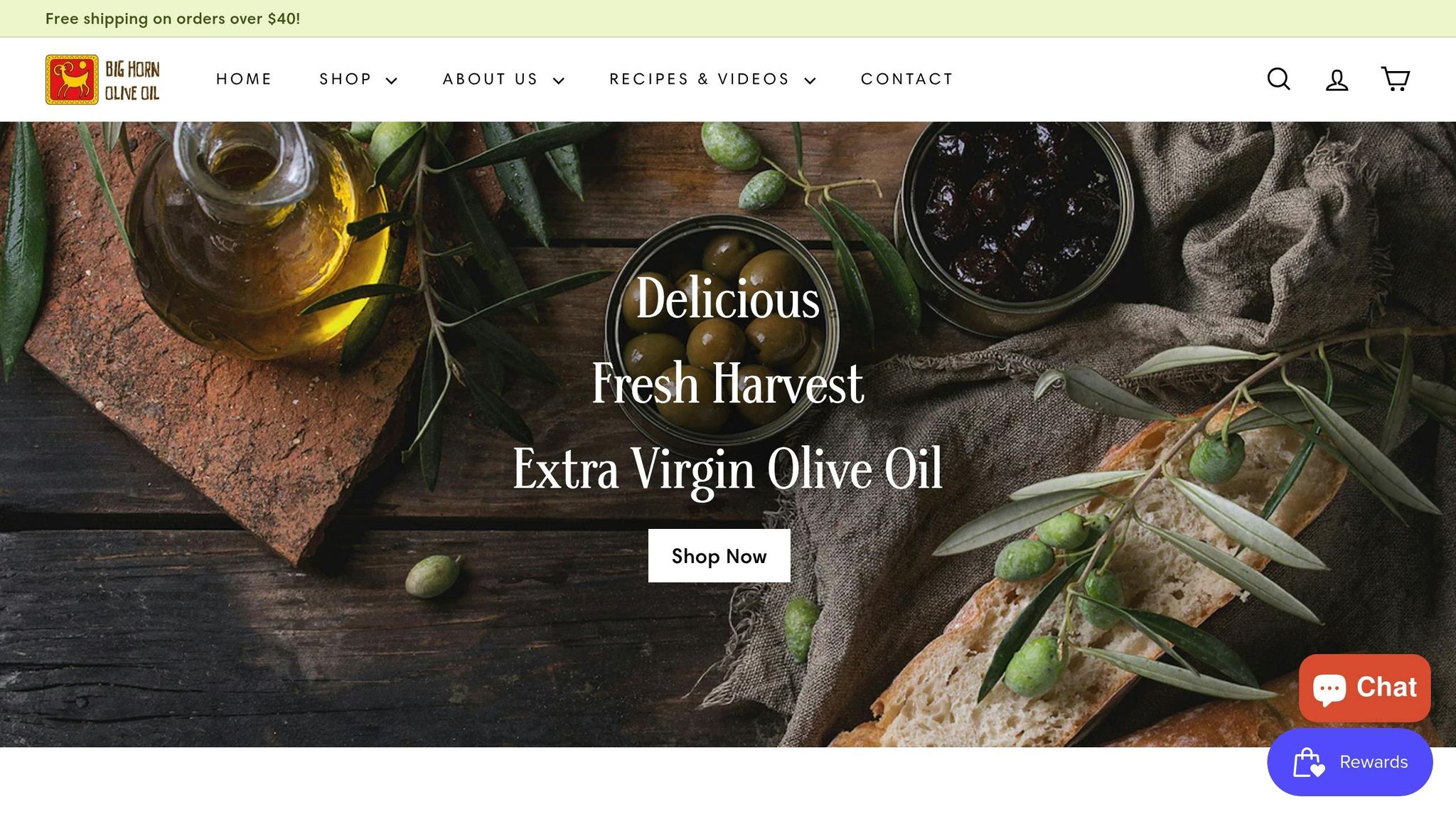Olive Oil Dosage for Heart Health Benefits
Olive oil is a heart-friendly fat that can help reduce LDL cholesterol, increase HDL cholesterol, and lower inflammation in blood vessels. Extra virgin olive oil (EVOO) is especially effective due to its antioxidants and polyphenols like oleocanthal, which protect arteries from oxidative damage. To support heart health, aim for 1.5 tablespoons of EVOO daily. Use it in salads, on roasted vegetables, or for low-heat cooking.
Key Takeaways:
- Daily Amount: 1.5 tablespoons (about 180 calories).
- Health Benefits: Improves cholesterol levels, reduces inflammation, and protects arteries.
- Usage Tips: Use it raw or for light cooking to preserve its nutrients.
- Choose High-Quality EVOO: Look for cold-pressed, minimally processed oils with high polyphenol content.
- Caution: Monitor calorie intake and consult your doctor if you have health conditions like diabetes, high blood pressure, or take blood-thinning medications.
Incorporating EVOO into your diet consistently is more effective than occasional heavy use. For the best results, opt for fresh, premium-quality oils like those from Big Horn Olive Oil, which prioritize antioxidant content and purity.
Olive oil: How to unlock health benefits | Prof. Tim Spector & Elizabeth Berger
Daily Olive Oil Amount for Heart Health
Let’s dive into how much olive oil you should aim for each day and some simple ways to make it part of your meals.
FDA Guidelines and Research Findings

Although the FDA doesn’t specify a recommended daily intake for olive oil, experts agree that incorporating extra virgin olive oil into your diet daily can support heart health. Studies show that regular, moderate consumption helps maintain healthy cholesterol levels and promotes better cardiovascular function. The key takeaway? Consistency matters more than occasional heavy use - making olive oil a staple in your routine is what counts.
Simple Ways to Include Olive Oil in Your Diet
- Start your day by drizzling olive oil over eggs or avocado toast for a flavorful twist.
- Upgrade your salads with a quick dressing: whisk together olive oil, lemon juice, herbs, and a pinch of salt. Bonus: it helps your body absorb fat-soluble vitamins.
- At dinner, add a light drizzle of olive oil to roasted vegetables, fish, or pasta for a finishing touch.
- For cooking, use it for low-heat sautéing or pan-searing to keep its benefits intact.
How Olive Oil Improves Heart and Cholesterol Health
Incorporating olive oil into your daily routine can do wonders for your heart and cholesterol health, thanks to its powerful bioactive compounds.
Extra virgin olive oil (EVOO) is packed with antioxidant biophenols, which play a critical role in protecting your heart. These antioxidants help neutralize free radicals, reducing oxidative stress - a key factor in maintaining vascular health and supporting optimal heart function.
Another benefit? EVOO helps combat chronic inflammation, which is essential for preserving the resilience and functionality of your blood vessels.
Big Horn Olive Oil describes their EVOOs as "Healthy, Fresh, Unique" and highlights that they are "Packed with antioxidant biophenols, exceeding EVOO standards".
For the best results, quality matters. Opting for premium, minimally processed olive oil ensures a higher concentration of these health-boosting compounds, amplifying its heart-protective benefits.
sbb-itb-4066b8e
Picking the Best Olive Oil for Heart Health Benefits
What Makes High-Quality Olive Oil
Not all olive oils are created equal, and premium options stand out for their superior quality and health benefits.
Freshness is key. Check the crush date on the bottle - it tells you when the olives were processed, not when the oil was bottled. For the best results, use olive oil within 9 months of the crush date to retain its high antioxidant levels.
Antioxidant content and purity are crucial. Opt for 100% pure Extra Virgin Olive Oil (EVOO). Look for oils that exceed standard EVOO polyphenol levels, as these compounds are responsible for olive oil’s heart-protective properties.
A high smoke point signals quality. Oils with a smoke point of at least 410°F can be used for cooking without losing their beneficial properties.
Ultra Premium standards raise the bar. Ultra Premium EVOOs are made from the top 5% of olives, ensuring maximum heart-healthy compounds.
To maintain quality, buy olive oil in smaller containers that you can finish within a few weeks or months after opening. Once exposed to air, even the best oils begin to degrade, losing their beneficial properties.
By choosing olive oils that meet these criteria, you’re ensuring the maximum heart-health benefits.
Big Horn Olive Oil: Premium EVOO Source

If you're searching for top-tier olive oil, Big Horn Olive Oil delivers Ultra Premium Extra Virgin Olive Oils crafted with heart health in mind. Their emphasis on freshness ensures every bottle reaches you in peak condition - they ship their products within 1-3 months of harvest.
Their selection features premium varieties like Picual, Arbequina, and Cobrançosa, each packed with antioxidant-rich biophenols that surpass standard EVOO requirements.
Big Horn Olive Oil’s quality control begins at the source. They select only the top 5% of olives for production and cold-press them within 2 hours of harvest. This meticulous process locks in the maximum amount of heart-protective compounds.
"The very healthiest oils you can buy." - LakeTahoeGem, Google Review (Local Guide)
Their oils have earned international acclaim as "Best In Class Olive Oils", a testament to their commitment to both health and quality. Every bottle contains pure EVOO, free from any blending with other oils, ensuring you get the full concentration of beneficial compounds your heart needs.
Big Horn Olive Oil’s philosophy - "Healthy, Fresh, Unique" - means you’re not just buying olive oil. You’re investing in a product crafted to support your heart health with unmatched quality and freshness.
Risks and Things to Consider
While olive oil offers many heart health benefits, it’s important to approach its use thoughtfully.
Calories and Portion Control
Olive oil is calorie-dense, with each tablespoon containing about 120 calories and 14 grams of fat. Consuming too much can lead to weight gain, potentially negating its positive effects.
The recommended daily intake is around 1.5 tablespoons, which adds approximately 180 calories to your diet. If you’re not adjusting your portions or reducing other fats to accommodate these calories, it’s easy to surpass your daily caloric needs.
Pay attention to your overall fat intake. The American Heart Association suggests that fats should make up 25–35% of your daily calories. For someone on a 2,000-calorie diet, this equals roughly 56–78 grams of fat per day. Your olive oil consumption should be part of this total, along with other healthy fats.
These calorie considerations also tie into how specific health conditions may impact olive oil usage.
Special Health Conditions to Consider
Certain health conditions may require a more tailored approach when adding olive oil to your diet. Always consult your healthcare provider before making significant changes, especially if you’re on medication.
For diabetes: Olive oil can lower blood sugar levels, which might interfere with diabetes medications. If you’re incorporating more olive oil into your meals, monitor your blood sugar closely, as your medication dosage might need adjustment.
For high blood pressure: Olive oil’s ability to lower blood pressure can enhance the effects of antihypertensive drugs. This could result in blood pressure dropping too low, so regular monitoring and discussions with your doctor are essential.
For those on blood-thinning medications: Olive oil may slow blood clotting, increasing the risk of bruising and bleeding when combined with anticoagulants or antiplatelet drugs like aspirin or warfarin. Consult your doctor if you’re increasing olive oil intake.
Before surgery: Olive oil can affect blood sugar levels during and after surgery. To minimize risks, stop consuming it at least two weeks before any scheduled procedure.
During pregnancy or breastfeeding: Stick to typical food amounts of olive oil during these periods. The safety of higher doses hasn’t been well-studied, so it’s better to err on the side of caution.
For those with allergies: If you’re allergic to olives, olive leaves, or related plants, avoid olive oil entirely.
| Health Condition | Risk | Recommended Action |
|---|---|---|
| Diabetes | May lower blood sugar too much | Monitor levels closely; consult doctor about medication adjustments |
| High Blood Pressure | May cause blood pressure to drop excessively | Monitor blood pressure; discuss with your healthcare provider |
| Blood-thinning Medications | Increased bleeding and bruising risk | Consult doctor before increasing olive oil intake |
| Upcoming Surgery | May affect blood sugar control | Cease consumption 2 weeks before surgery |
| Pregnancy/Breastfeeding | Unknown safety of higher doses | Limit to typical food amounts during pregnancy or breastfeeding |
Key Points for Heart Health
Maintaining heart health with olive oil boils down to three essentials: mindful portioning, selecting high-quality oil, and using it correctly in your meals.
Including 1.5 tablespoons of olive oil in your daily diet can promote heart health, as long as it fits within your overall calorie needs.
Quality matters. Extra virgin olive oil (EVOO) that's rich in polyphenols and antioxidants is your best choice. Look for cold-pressed oils and aim to use them within three months of harvest for peak freshness. For example, Big Horn Olive Oil offers premium EVOO that meets these standards.
Incorporating olive oil into your meals can help improve cholesterol levels and reduce inflammation - two key factors for a healthier heart.
Stick to room temperature or light cooking when using olive oil. High heat can break down its antioxidants, reducing its health benefits.
FAQs
How can I choose high-quality olive oil that supports heart health?
To pick a top-notch olive oil that supports heart health, go for extra virgin olive oil (EVOO). It's the least processed variety, meaning it keeps more of its nutrients intact. When shopping, check the label for a harvest or bottling date - freshness matters, and oils packaged within the past year are your best bet. Also, look for oils stored in dark glass bottles or tins, as these shield the oil from light and help maintain its quality.
For the best health perks, focus on oils with a low acidity level and a polyphenol content above 250 mg/kg. These antioxidants are tied to heart health. Stick with brands that prioritize freshness, quality, and clear sourcing. For example, Big Horn Olive Oil offers premium EVOO designed to deliver both outstanding flavor and health benefits.
How can I easily add 1.5 tablespoons of olive oil to my daily diet without going over my calorie goals?
Incorporating 1.5 tablespoons of olive oil into your daily meals is both easy and flavorful. Use it as a simple salad dressing, drizzle it over steamed or roasted veggies, or stir it into cooked grains like quinoa or rice for added richness. You can also replace less nutritious fats, like butter or margarine, with olive oil when cooking or baking. These small adjustments can help you enjoy the heart-friendly perks of olive oil, such as better cholesterol levels, all while staying within your calorie goals.
Are there any risks or side effects to increasing olive oil intake, especially if I have a health condition or take medication?
While olive oil is often celebrated for its health perks, increasing your consumption might come with a few drawbacks - especially if you have certain health conditions or take specific medications. For instance, olive oil can lower blood pressure and reduce blood clotting. If you're already on blood pressure medications or blood thinners, this could enhance their effects, potentially leading to a higher risk of bleeding or even hypotension.
On top of that, olive oil is calorie-dense, so consuming too much could contribute to weight gain. In rare cases, it might also cause digestive discomfort. If you're managing a health condition or taking medication, it’s a smart idea to check with your healthcare provider before making any big changes to how much olive oil you use.

